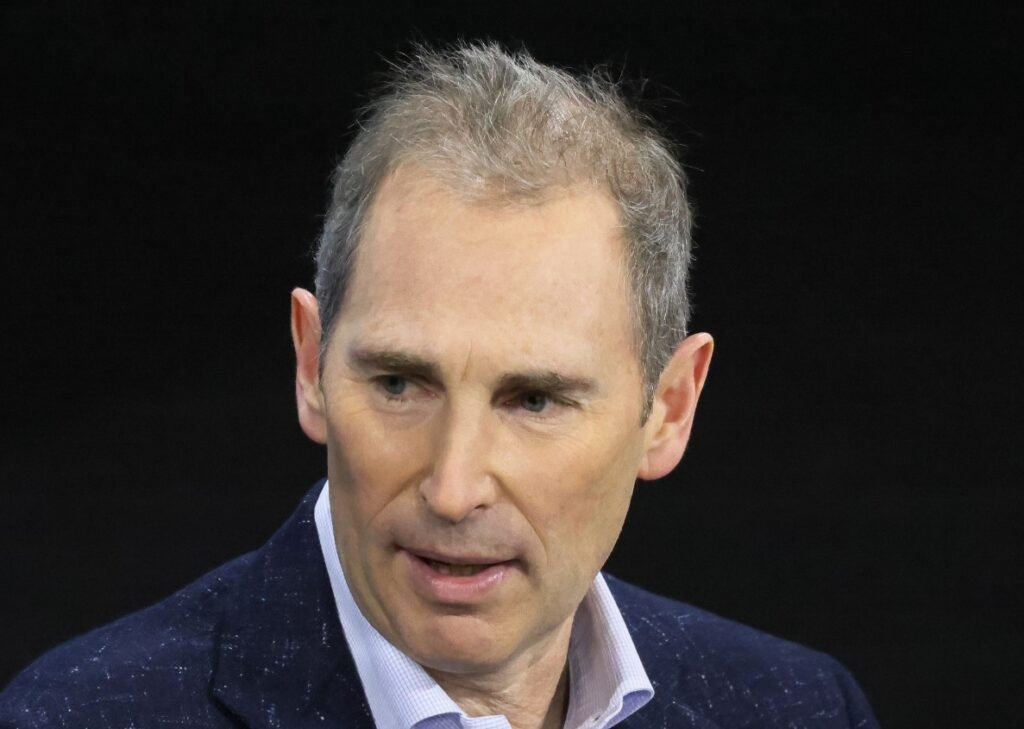


Amazon's chief executive Andy Jassy has announced that all staff will be expected to return to working in the office full-time starting in January. This decision has sparked backlash as it goes against the company's previous hybrid work policy and adds pressure to already overwhelmed corporate staff. Jassy's concern for maintaining Amazon's intense start-up culture and avoiding bureaucratic layers has led to these changes, potentially resulting in job cuts. However, some employees are claiming unfair retaliation, opening up a dispute with labour officials.
Amazon Reverses Hybrid Work Policy, Mandating Full-Time Office Return
Tech giant Amazon has announced a major shift in its workplace policies, requiring all staff to return to working in the office five days a week starting in January 2023. This decision, announced by CEO Andy Jassy, marks a significant departure from the company's previous hybrid work arrangement.
Background on Amazon's Hybrid Work Policy
In March 2022, Amazon implemented a hybrid work policy following the COVID-19 pandemic. Under this policy, employees were given the option to work remotely for up to two days per week. This arrangement was widely embraced by staff, who enjoyed the flexibility and work-life balance it provided.
Reasons Behind the Policy Change
Jassy has cited concerns about maintaining Amazon's "intense start-up culture" and avoiding the formation of bureaucratic layers as the driving force behind the return-to-office mandate. He believes that in-person collaboration and mentorship are essential for the company's success.
Employee Backlash and Retaliation Claims
The decision has been met with significant backlash from employees. Many have expressed concerns over the impact the change will have on their work-life balance, productivity, and overall well-being. Some employees have also alleged unfair retaliation after speaking out against the policy, claiming that they have been denied promotions or given negative performance reviews. This has led to a dispute with labor officials.
Potential Job Cuts
Industry analysts have suggested that the return-to-office mandate could result in job cuts. With employees forced to commute to and work in the office full-time, some may opt to resign or find more flexible employment options elsewhere.
Top 5 FAQs and Answers
Q1: Why is Amazon implementing a full-time office return policy? A1: Amazon believes that in-person collaboration and mentorship are essential for maintaining its intense start-up culture and avoiding bureaucratic layers.
Q2: What impact will this have on work-life balance? A2: Employees have expressed concerns that the full-time office return will negatively impact their work-life balance.
Q3: Are there concerns about unfair retaliation for employees who speak out? A3: Yes, some employees have alleged that they have faced retaliation for speaking out against the return-to-office policy.
Q4: Could this lead to job cuts? A4: Industry analysts have suggested that the return-to-office mandate could result in job cuts as employees may opt to resign or find more flexible employment options.
Q5: What is the current status of the dispute with labor officials? A5: The dispute with labor officials is ongoing, with employees alleging unfair retaliation.

At only 33 years old, Indian software engineer Ershad Kunnakkadan has been named the new CEO of San Francisco-based e-commerce company Gumroad. He joined the company in 2020 and rose through the ranks to take on the role after founder Sahil Lavingia stepped down. Kunnakkadan's appointment marks a milestone in tech leadership for Indians abroad and has been met with excitement and pride from both Gumroad and its customers.

GreenCell Mobility, a leading Indian company in the electric mobility sector, has been awarded a Letter of Award for the supply and deployment of 472, as well as 750 electric buses in Madhya Pradesh and Andhra Pradesh respectively, under the PM E-Bus Sewa scheme. With a strong commitment to transforming urban mobility and electrifying public transport, the company has already installed 900 electric buses in Uttar Pradesh, Gujarat, and Maharashtra. This latest development is a major milestone in their mission to make clean and efficient public transportation accessible across India's growing cities.

With the current volatility in the global stock markets, it may be hard for consumers to make sense of the ups and downs. Terms like dead cat bounce and bear and bull markets may be unfamiliar to some. This guide provides a breakdown of these terms, giving context to their use in financial markets. It also includes insights on capitulation, an important concept in understanding market movements. Whether you are a seasoned investor or someone just starting out, this is a must-read guide for navigating the tumultuous market climate.

Aditya Birla Sun Life Insurance has introduced their new Dividend Yield Fund, available through their existing ULIPs, which will primarily invest in top dividend-paying companies in India. The fund aims to provide steady and consistent value creation through a mix of equities and debt instruments. This move reflects Aditya Birla Sun Life Insurance's commitment to balancing protection and performance for their policyholders, allowing them to achieve their long-term financial goals with confidence in a stable market environment.

Blackstone, a major asset manager, has announced plans to invest $1.2 billion in building a new power plant in West Virginia to meet surging electricity demand from artificial intelligence and industrial growth. The 600-megawatt plant will be funded by utilities and large investors, and will supply power to Old Dominion Electric Cooperative, serving 1.5 million residents. Blackstone's senior managing director says the investment aligns with their focus on meeting the increasing demand for electricity from AI and other industries. This is just the latest in Blackstone's recent energy investments, totaling over 1,600 megawatts of new gas-fired capacity.

Efforts to ease tensions between Pakistan and Afghanistan came to a standstill during peace talks in Istanbul, with both sides pointing fingers at each other for the breakdown. In a press conference, Afghan delegation leader Mullah Najib shared that Pakistan demanded a fatwa against the Tehreek-e-Taliban Pakistan (TTP) from the Taliban's Supreme Leader. He stated that such a decision should be made by the Dar al-Ifta, a religious authority in Afghanistan, in response to a written request from Pakistan's government. This comes as Pakistan has repeatedly accused Afghanistan's Taliban rulers of supporting the TTP, a militant group responsible for attacks inside Pakistan.

After months of anticipation and restructuring, Tata Motors Commercial Vehicles Ltd (TMCVL) is finally set to debut on the Indian stock exchanges today. As part of the demerger process, the commercial vehicle (CV) business has now been renamed Tata Motors and will operate as a separate entity. Experts are expecting a strong debut for the company's shares, with a potential listing price range of Rs 300-350 per share. Investors will have to exercise caution, as the stock will initially be in the trade-for-trade segment to ensure smooth price discovery.

Indian equity benchmark indices, the Sensex and Nifty, started the session in the green on Wednesday with a significant increase backed by positive global cues. Shares of the commercial vehicle business of Tata Motors will start trading today after their debut on the bourses. With major players like Eternal and Bajaj Finserv leading the pack, the markets saw a mixed response from different sectors. Foreign Institutional Investors offloaded equities while Domestic Institutional Investors bought stocks, shaping market trends for the day. Broader Asian equities and the US markets also showed mixed signs.

Economic Offences Wing conducts raids on an assistant manager of Primary Agricultural Credit Co-operative Society in Madhya Pradesh and uncovers movable and immovable assets worth crores of rupees. The EOW had received a complaint regarding alleged corruption by the manager, leading to the registration of an FIR. The team finds that the manager acquired these assets in his and his family members' names in the past 10 years, despite only receiving a salary of Rs 50 lakh in his 15 years of service. Investigation is ongoing into the purchase of bank accounts, lockers, and agricultural land by the manager.

The Deputy Commissioner of Pulwama, Dr. Basharat Qayoom, recently chaired a review meeting to assess the progress of the PM Surya Ghar Muft Bijli Yojana in the district. Detailed presentations were given on the achievements and current status of the scheme, with a focus on expediting the installation of rooftop solar systems and streamlining the bank loan process. The importance of active coordination between KPDCL, vendors, and banking partners was emphasized, along with the need for a public outreach campaign to promote the long-term benefits of the initiative.